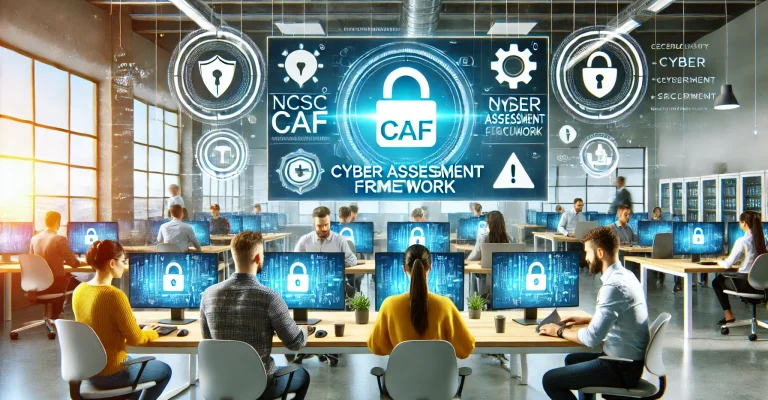Legal Industry Security Introduction
The legal industry is undergoing a technological revolution. From digital document management systems to virtual client consultations, law firms are leveraging technology to enhance efficiency and improve client services. However, this digital transformation brings with it new challenges, particularly in the realm of cyber security. As guardians of highly sensitive and confidential information, law firms must prioritise robust cyber security measures. Failing to do so can lead to severe financial and reputational consequences. This article delves deeply into the best practices for cyber security within the legal industry, covering technical solutions, employee training, and compliance with data privacy regulations.
The legal industry has seen significant changes with the rise of technology. Enhanced client service, streamlined processes, and overall efficiency improvements are just a few of the benefits. However, these advancements also present new challenges, especially regarding cyber security. Law firms have become attractive targets for cyber criminals who seek to exploit vulnerabilities to access confidential information. Techniques such as phishing, malware, and social engineering are becoming increasingly sophisticated, making it crucial for law firms to be vigilant in protecting client data and privacy.
The Imperative of Cyber Security in the Legal Industry
Consequences of Data Breach
A cyber-attack can have disastrous effects on both individual law firms and the legal industry as a whole. The consequences can include the loss of sensitive information, ensuing lawsuits, hefty regulatory fines, and irreparable damage to a firm’s reputation. For example, a breach that exposes client information can lead to a loss of trust and client attrition, which can be financially crippling. Additionally, firms may face legal repercussions if they fail to comply with data protection laws. Thus, proactive measures are essential to mitigate these risks.
Specific Challenges in the Legal Industry
Handling Vast Amounts of Sensitive Data
Law firms handle a substantial amount of sensitive data, including personal information, business secrets, and confidential client communications. The sheer volume of this data increases the risk of exposure and makes law firms attractive targets for cyber criminals. Ensuring all this data is securely stored and transmitted is a significant challenge that requires robust encryption methods and secure communication channels.
Compliance with Multiple Jurisdictions
Many law firms operate across multiple jurisdictions, each with its own set of data protection regulations. This complexity can make it difficult for firms to ensure compliance with all applicable laws. Failure to adhere to these regulations can result in severe penalties. Firms must stay updated on various legal requirements and implement compliance strategies accordingly.
Increased Use of Mobile and Remote Work
The rise in remote working and the use of mobile devices pose additional security challenges. Ensuring that data accessed from outside the office is as secure as data accessed from within is crucial. This requires implementing secure remote access solutions, such as virtual private networks (VPNs), and ensuring mobile devices are protected with up-to-date security measures.
Vendor and Third-Party Risks
Law firms often work with various vendors and third-party service providers who may also have access to sensitive data. Ensuring that these external parties adhere to the same high standards of cyber security is essential to prevent data breaches originating from less secure partners.
Targeted Cyber Attacks
Cyber criminals often target law firms specifically because of the high-value information they hold. These targeted attacks can be sophisticated and persistent, requiring law firms to implement advanced threat detection and response strategies to defend against them.
Strategies for Protecting Client Data
Technical Solutions
Effective cyber security begins with robust technical solutions. These include:
- Firewalls and Antivirus Software: Firewalls act as a barrier between trusted and untrusted networks, while antivirus software detects and removes malicious software. These tools are fundamental in preventing unauthorised access and malware infections.
- Data Encryption: Encrypting sensitive data ensures that even if information is intercepted, it cannot be read without the decryption key. This is especially crucial for data stored on servers and transmitted over networks.
- Multi-Factor Authentication (MFA): MFA adds an extra layer of security by requiring users to provide two or more verification methods before gaining access. This can include something the user knows (password), something the user has (security token), or something the user is (biometric verification).
- Regular Software Updates: Keeping software up-to-date ensures that the latest security patches are applied, reducing vulnerabilities that cyber criminals can exploit.
- Secure Cloud Services: Utilising reputable cloud services with strong security protocols can provide additional protection for data storage and management.
- Intrusion Detection Systems (IDS): These systems monitor network traffic for suspicious activity and can alert administrators to potential threats.
- Security Information and Event Management (SIEM) Systems: SIEM systems collect and analyse log data from various sources within the network to identify patterns that may indicate a security breach.
Employee Training
Human error remains one of the most significant vulnerabilities in cyber security. Law firms must invest in regular and comprehensive employee training to ensure staff are aware of the latest threats and best practices. Key training areas include:
- Phishing Awareness: Employees should be trained to recognise phishing attempts and avoid clicking on suspicious links or downloading attachments from unknown sources.
- Password Management: Encouraging the use of strong, unique passwords for different accounts and regularly updating them can prevent unauthorised access.
- Secure Device Usage: Employees should be aware of the risks associated with using personal devices for work purposes and follow guidelines to secure these devices.
- Incident Reporting: Establishing a clear protocol for reporting suspected cyber security incidents can ensure a swift response and mitigate potential damage.
Data Privacy Regulations and Policies
Regulatory Compliance
Compliance with data privacy regulations is non-negotiable for law firms. The General Data Protection Regulation (GDPR) and other similar laws impose strict standards for the handling and protection of personal data. Non-compliance can result in substantial fines and damage to the firm’s reputation. Key compliance measures include:
- Data Audits: Regular audits can help identify potential vulnerabilities and ensure that all data is handled in compliance with relevant regulations.
- Data Minimisation: Limiting the collection of personal data to what is strictly necessary for legal purposes can reduce the risk of exposure.
- Client Consent: Ensuring that clients provide explicit consent for the use of their data is a fundamental requirement under GDPR and other regulations.
Cyber Security Experts
Given the complexities of both cyber threats and data privacy regulations, engaging cyber security experts can be a prudent move. These professionals can:
- Risk Assessment: Conduct thorough assessments to identify and address potential vulnerabilities.
- Strategy Development: Develop comprehensive cyber security strategies tailored to the specific needs of the law firm.
- Ongoing Support: Provide ongoing support and monitoring to ensure that the firm’s cyber security measures remain effective against evolving threats.
Advanced Cyber Security Measures
In addition to basic measures, law firms should consider advanced strategies to further bolster their cyber security:
- Regular Penetration Testing: Conducting penetration tests simulates cyber-attacks to identify and fix weaknesses before actual attackers can exploit them.
- Zero Trust Architecture: Adopting a zero trust model assumes that threats could be both outside and inside the network, requiring strict verification for every access request.
- Behavioral Analytics: Using advanced analytics to monitor user behavior and detect anomalies can help identify potential security threats early.
- Endpoint Detection and Response (EDR): EDR solutions monitor end-user devices for signs of malicious activity and provide tools for rapid response and remediation.
Conclusion
The legal industry cannot afford to neglect cyber security in an age where both the rewards and risks of technological adoption are high. Proactive measures, including the implementation of state-of-the-art technical solutions, comprehensive employee training, and stringent compliance with data privacy regulations, are imperative. By adopting these strategies, law firms can ensure the highest level of protection for their clients’ sensitive and confidential information.
References
Cyber threats in the Legal Sector, NCSC
Cybersecurity for Law Firms: What Legal Professionals Should Know














